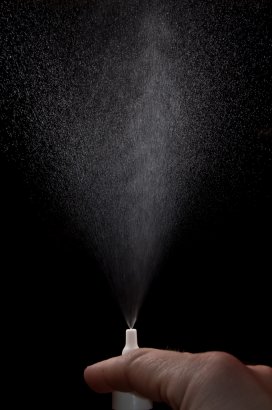
First found in alpacas, nanobodies are like antibodies, but they are smaller, simpler molecules. Because of that, they are easy to make and manipulate. Essentially, scientists can build a small gene that produces the nanobody, insert it into certain microorganisms, and let the microorganisms churn out the nanobodies. As a result, there have been many, many different kinds of nanobodies produced over the years. The researchers searched a database that contained more than two billion nanobody genes, and they found 21 that should be able to bind to the virus’s spike proteins in some way. They put those genes into yeast, extracted the nanobodies that were produced, and studied them.
Based on their analysis, they found the three most promising candidates and tested them against the virus itself. One of the nanobodies was particularly effective, so they focused on it. They mutated the gene multiple times to make slight changes to the nanobody and tested the result against the virus. They then produced a gene that could take the three most effective nanobodies and chain them together. The result was a chemical that basically shut down the virus’s ability to infect human cells.
Here’s the exciting aspect of this kind of solution: The nanobody is very simple compared to most biological molecules. As a result, it isn’t fragile. It can be heated, turned into a powder, or aerosolized without being changed. As a result, it can be administered as a nasal spray or through a nebulizer. In fact, they say that it is so stable it can be integrated into the air filters of heating and air-conditioning systems. Theoretically, any virus that goes through such a filter will be unable to infect people.
Now, of course, there are two issues here. First, the paper hasn’t been peer reviewed, so there could be a problem with the research itself. Based on my reading of the paper, I find that unlikely, but I am not very knowledgeable in the field. As a result, there could be big mistakes that I am missing. Second, this chain of nanobodies has been tested in a lab, but not in real-life settings, and not with people. While it is hard to imagine how these nanobodies could adversely interact with people, until clinical trials are done, we just don’t know.
Since this preventative measure has not even been put in clinical trials yet, it will take a while to see if it is effective. My gut feeling says that a vaccine will be ready before then. So even if this treatment works, it might end up being a supplement to the vaccine. Those who are worried about getting the vaccine, those who have pre-existing conditions that prohibit them from getting the vaccine, or those who do not respond to the vaccine might be able to use this preventative measure instead. Of course, it’s possible that the vaccines won’t pass their clinical trials, so this might end up being the first effective preventative measure against COVID-19.
Regardless of what happens, this is an exciting line of research. Even if it ends up not being used against COVID-19, it might be used against another virus.

The vaccines are being rushed … skipping animal trials etc… there have already been adverse side effects … a vaccine for a corona virus has yet to be effective previously so treatment is a much better route … there are already physicians successfully treating people … hopefully this will be helpful as well !
My concern is, what of helpful viruses? Will it destroy them, as well? Russia had developed bacterial strains that killed diseases, and when it found no more of the target in the body, died. It’s unfortunate they ceased work when penicillin became cheap and widely available.
It can only inactivate viruses that bind to ACE2, so it is very targeted.
This is fascinating. Thanks for sharing!